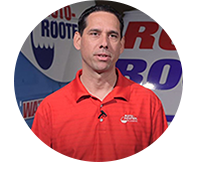What a Plumber Does and How to Become a Plumber
Are you tired of being stuck in a manufacturing line or an office cubicle all day long? Are you just finishing high school and looking for a high-paying career but aren't interested in attending a university? Are you good with your hands? Do you like working with people? If you answered yes to these questions, you should look into becoming a plumber.
How to Become a Plumber
Becoming a plumber takes time and there are different levels and specialties of plumbers. Each stage of a plumber career has prerequisites that need to be completed in order to move to the next phase of a career. Whether you decide to attend plumbing school or learn under a licensed plumber, the below sections will help you in your decision making process.
What Does it Take?
What are the Benefits of Being a Plumber?
There are many advantages to becoming a plumber and pursuing a career as a plumber. Here are just a few:
- High Salary Potential: Journeyman plumbers can make enough to support a family and live comfortably. Master plumbers can earn over $100,000 a year.
- High Demand: According to the Bureau of Labor Statistics, employment of plumbers, pipefitters, and steamfitters is projected to grow 16 percent from 2016 to 2026, much faster than the average for all occupations.
- Economic Stability: Consumer demand for plumbing services remains high even during tough economic times. There will always be a need for plumbers. Home or business owners may cut back in other areas, but they will still pay a plumber to come fix a broken toilet.
- Paid Training: Companies will pay you for your work during your apprenticeship. This means you earn money while you are still learning how to do your job, unlike colleges and universities that require you to pay them while you learn.
Frequently Asked Questions
How much do plumbers make?
Experienced and licensed plumbers can earn well over $100,000 annually. A first year plumber can expect to earn between $60k-$68k, depending upon the location. Learn More
What does a plumber do?
Plumbers install, repair, and replace plumbing fixtures (sinks, toilets, urinals, tubs/showers), water supply lines and drainpipes.
What is a Master Plumber?
Master Plumbers are highly experienced plumbers who have reached the highest professional level of the trade. They have many years of experience and passed a state Master Plumber exam.
What is a journeyman plumber?
A skilled individual working in the plumbing trade who holds a state journeyman plumber certificate or license.
What is the hourly rate for a plumber?
It varies widely across the country and depends on the local cost of doing business. Many plumbers charge a flat-rate fee following an in-person cost estimate without resorting to hourly charges.
What is a plumber?
A plumber is an individual repairs, installs and replaces residential and commercial plumbing fixtures and appliances such as sinks, faucets, toilets, bathtubs, showers, sump pumps and water softeners.
